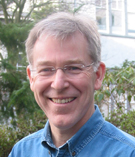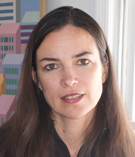

Keynote Speakers
Associate Professor Gary Poole
Gary Poole is the Director of the Centre for Teaching and Academic Growth and the Institute for the Scholarship of Teaching and Learning at the University of British Columbia. He is President-Elect for the International Society for the Scholarship of Teaching and Learning. Gary has won a 3M Teaching Fellowship, which is a Canadian national teaching award, an Excellence in Teaching award from Simon Fraser University, and a Queen’s Golden Jubilee Medal for contributions to Higher Education. He is the co-author of “Effective Teaching with Technology in Higher Education,” and “The Psychology of Health and Health Care: A Canadian Perspective.” Dr. Poole is also a member of the School of Population and Public Health in UBC’s Faculty of Medicine. Dr. Poole’s educational research reflects these perspectives, with the overarching goal of increasing institution-wide capacity to pursue the scholarship of teaching and learning.
Continuing education and professional development
There is a rich and growing scholarship related to teaching and learning. However, teaching practice and faculty development practice are not guided by this scholarship to the extent that they should be. In other words, these practices could be more “evidence based.” In fact, many professions find it challenging to effectively inform daily practice with sound evidence. Reasons for this include the following: the size and complexity of the research; the access to that research; and the effectiveness of continuing education programs required to help practitioners translate research evidence into practice. In this presentation, we will explore these and other factors that make this job of “continuing education,” or faculty development as we would call it, challenging. We will also look at ways to address those challenges.

Professor Caroline Baillie
Caroline has recently been recruited as Chair of Engineering Education for the Faculty of Engineering, Computing and Mathematics at the University of Western Australia. Before coming to Perth, Caroline was Chair of Engineering Education Research and Development at Queens University, Kingston, Ontario, where she was also cross appointed into Chemical Engineering, Sociology and Women’s studies. Formerly she was lecturer in Materials and Education development at Imperial College, UK and lecturer in Mechanical Engineering at the University of Sydney, as well as Deputy Director of the Materials Subject centre, part of the Learning and Teaching support network in the UK supporting all materials engineering academics and Departments nationwide. Caroline has published over 160 peer reviewed journal papers and proceedings, 7 authored books and 11 edited books in Engineering and Engineering Education including practice and development, teaching and supervision, science and engineering knowledge development, education and social justice. Caroline continues to practice as an Engineer through her work for the not-for-profit ‘Waste for Life’ organisation and her technical Materials Engineering research.
Educating for a socially just world: A case of engineering education
Students of all disciplines graduating in today’s economic climate, in a period of rapid globalization and an ever increasing need to deal with poverty reduction, environmental impact and sustainability of resources, will need to be adaptable and creative as well as sensitive to diverse cultures and contexts. This is even more true of students in professional disciplines. But the idea of engineering, for example, focused on global social justice, challenges the view many engineering students have of their future profession. But how do we decide on our values and moral frameworks in order to make those choices as engineers? What value judgments are we making and why? How do we help students grapple with these issues? We often hear discussions about our ‘responsibility’ as an engineer but as with ethics, the word ‘responsibility’ takes on different meanings depending on the context.
In this talk I will explore how engineering professors across the world are trying to help students learn to develop their own sense of values in relation to the work they will do as engineers. We will look at a first year class on Professional skills, programs on engineering and social justice, sustainability and ethics as well as student community service learning projects. In these project-based learning scenarios, students can work directly with diverse community groups in different countries to gain multicultural as well as multidisciplinary problem solving experiences, necessary for their preparation as real professionals in a changing world.
